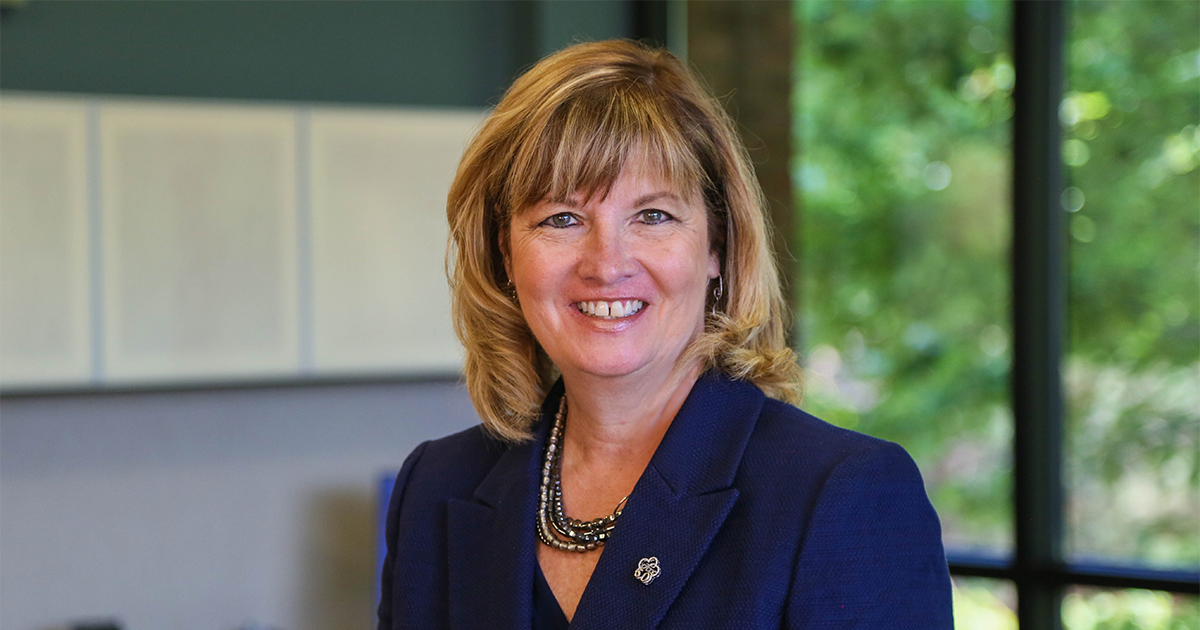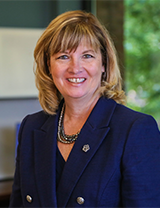Steady SAILS During the Pandemic

 This commentary originally appeared in Community College Daily, published by the American Association of Community Colleges.
This commentary originally appeared in Community College Daily, published by the American Association of Community Colleges.
Early in the pandemic, an adviser in Lorain County Community College’s successful Students Accelerating in Learning (SAIL) program got a frantic call from one of her students. She was at a local gas station, out of gas and out of money.
SAIL students qualify for a monthly gas/grocery card in return for participating in regular advising sessions. It’s just one part of a comprehensive student success program, modeled on the innovative City University of New York’s Accelerated Study in Associate Programs (CUNY ASAP).
Both the original ASAP program and the replication at Lorain have been shown to double graduation rates in independent evaluations by MDRC. SAIL now serves 400 students annually, with plans to scale SAIL to serve 1,000 students or more in the future.
But this student hadn’t received a gas card yet. And she really needed it now. So, the adviser hopped in her car, donned a mask, and met the student at the gas station with a card.
Maintaining High-Touch Advising
Since its inception in 2015, SAIL has been characterized by its high-touch advising, much of it conducted through in-person meetings. Students in SAIL agree to enroll full time, and in return they receive personalized advising, career counseling, and tutoring; tuition assistance, the monthly gas or grocery card, and textbook vouchers; as well as regular group touchpoints and a program orientation experience.
SAIL advisers have lower caseloads than their peers, which allows students to meet with them about 13 times a semester on average.
When the coronavirus arrived, Lorain County Community College (LCCC) was challenged — like all institutions of higher education — to quickly transition to a virtual campus, a daunting task for all of us. In a matter of 10 days, the whole college moved more than 1,000 in-person courses on-line.
But how was this pivot going to affect a program like SAIL, which was so dependent on the close relationships built between advisers and students?
As it turns out, because SAIL advisers already had such strong connections to students, they were able to lead the way in making this transition successful for the whole student services department. They also became a real-time source of information about how LCCC students were faring during the crisis, alerting administrators to two immediate challenges: a continuing digital divide and growing food insecurity. Food pantry use quickly increased by 35 percent, and lack of adequate technology became the new transportation barrier for students.
Knowing that students would not be able to engage with school unless those problems were addressed, LCCC made them a top priority. The college quickly established curbside services to create a new form of access to the Commodore Cupboard food pantry and doubled down on its commitment to provide access to technology by expanding its computer recycling program and distributing more than 100 laptops to those in need.
In addition, LCCC allocated more than $160,000 in emergency aid through its Advocacy and Resource Center to help students enhance their internet services, purchase technology, or address other immediate needs.
Being Convenient for Students
Besides regularly calling, emailing, and texting their students, SAIL advisers also expanded their use of WebEx live chats — virtual office hours — for students to drop in with questions. The goal has been to be as available as possible for the convenience of students.
Other aspects of the SAIL program changed, as well. Advisers soon learned that students, overwhelmed with increased responsibilities and uncertainty during the pandemic, were not confident they could remain enrolled at the full-time status SAIL requires. While the majority of SAIL students were able to complete spring 2020 as planned, advisers worked with those facing immediate challenges to revise their academic plans to include summer classes. This approach allowed students who needed a different strategy to complete spring requirements to have the opportunity to do so, while maintaining their adviser relationship and connection to the program.
This alternative path to recover lost credit hours and remain on track for graduation within three years was well-received and built off a pilot the college had launched pre-COVID to test a part-time adaptation of SAIL. Having the systems and processes in place to continue to support SAIL students in a part-time format proved timely in response to the pandemic.
Applying Learned Lessons to the Fall
Taking lessons from SAIL and input directly from students, LCCC quickly realized students will need options to maintain the same pace of credit accumulation in a remote learning environment. Looking to the fall, the college is offering four different modes of instruction — from strictly on-line, asynchronous teaching to fully in-person classes and two hybrids in between — to allow students to choose what they are most comfortable with.
In addition, both SAIL and other advising teams have shifted their advising to include discussions with students about creatively leveraging subterms to stay on track with full-time enrollment, while minimizing the number of online courses they have to manage at one time.
SAIL advisers will continue to operate virtually. Their role will be more important than ever in helping guide and support students as they navigate the various modes of instruction that are available. The program has a ready-made infrastructure for helping students stay connected and engaged moving forward.
In partnership with four other community colleges in Ohio, LCCC is teaming up with the Ohio Department of Job and Family Services to continue to braid sources of funding, such as SNAP Education and Training resources, to support low-income students and continue SAIL’s expansion.
LCCC remains committed to expanding the SAIL program, which has become even more critical to the success of our students during this public health and economic crisis. As a result of the economic downturn, the college is expecting to see more students — both newly dislocated workers and traditional students who have decided to stay closer to home.
As a workforce pipeline, Lorain County Community College will help fuel the engine that brings Northeast Ohio back during the recovery. SAIL will be a critical part of that effort.
Marcia Ballinger is President of Lorain County Community College in Ohio.






